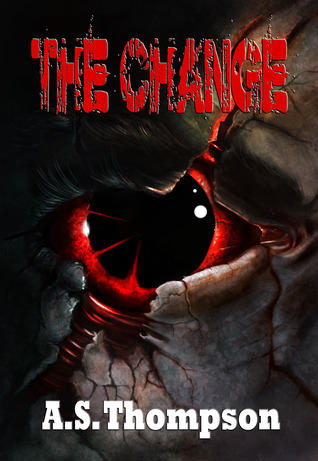 The Change, the sequel to The Longest Road, takes up a few months after the last book. The remaining cousins and their small party of survivors have found a peaceful existence on a little beachfront encampment in Washington state. It isn’t long, of course, before our heroes find themselves in more danger. And fighting more zombies.
The Change, the sequel to The Longest Road, takes up a few months after the last book. The remaining cousins and their small party of survivors have found a peaceful existence on a little beachfront encampment in Washington state. It isn’t long, of course, before our heroes find themselves in more danger. And fighting more zombies.
The story is told from three main perspectives/locations, each with its own set of problems and villains. Switching between these perspectives/locations kept things fresh and upped the suspense. It also allowed for a larger cast of characters, which also kept it interesting (and the death count high).
And, speaking of the characters, I found myself to be a lot more invested in all of them. They were a lot less expendable. Especially – surprisingly – Alex. I didn’t care either way for him in the last book but found myself holding my breath to see whether he lived or died during this one.
Also, I have to say, from word one, the sequel to The Longest Road is a big improvement. Just all around better. The prologue is interesting and has a really suave perspective transition. I’m getting information through dialogue, thoughts, and actions, rather than being told with blunt prose. The dialogue itself has improved. And, the perspective changes! Oh, dear god, the perspective changes! So many times I was jarred from the story by an awkward perspective change in The Longest Road, but in The Change, they’re perfect.
However, because I’m the type to get irked, I did find a few things irksome. A.S. Thompson, if you’re reading this, might I suggest that you don’t use “textbook” to describe things that aren’t covered in an actual text. I still don’t know what a “textbook wink” is. Also, please let your characters speak instead of constantly “starting to say” things. “Starting to say” things implies that they never finished saying it. There is so much dialogue that was attempted, and I can only guess whether it was actually said. And, give your characters some water, so they’re not always “swallowing into a dry throat” every time they get nervous. There are so many ways you can show that a character is panicking – ways that are only characteristic to them – that it was frustrating for all of the characters to have the same reaction.
Once again, I liked the ending and the setup for the next book. I’m eager to find out how the survivors move on after so many losses and, you know, how they’re going to save what’s left of the entire world.

